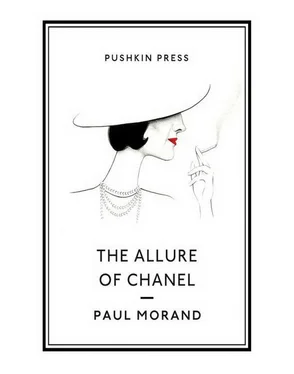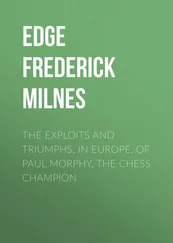Anyway, that is the person I am. Have you understood?
Very well, I am also the opposite of all that.
These are the materials that my memory has supplied me with, together with the bits and pieces that have been thrown into my garden and the motes that I have found in my neighbour’s eye.
What I am telling you is not a testament.
Where I am to go now, I don’t know, but I’m going somewhere and it’s not over. I have seen the approach of what has happened sufficiently clearly to be able to guess what will happen next. When people tell me that Europe is in ruins, I feel that she is my mother and that I shall stay close to her; but when they add, which is rather more serious, that Europe is old-fashioned, I feel that I would not be sorry to leave her, just as I left my family, and that I would continue or begin my life again very well without her.
If the Europe that is to come were to be the opposite of the one we are leaving, I would adapt myself to it; if, on the other hand, it’s the same Europe, only poorer and grimmer (I was going to write uglier, but it’s not that), then I’m off. “But fashion is Paris!” people say to me. I reply: provided that Paris is Paris and Europe is Europe. But Paris will not be Paris, nor Europe, Europe, as long as customers prefer a sausage to a dress and as long as I see American officers in uniform arriving at my shop … people who are in reality former clients, officers whose colonel is likely to throw his arms around my neck and tell me his name is Madeleine Carroll.
I believe that what will happen in the world tomorrow, will not happen in Europe. There’s the real tragedy. For I want to be part of what happens. I will go wherever is necessary for that. I am prepared to wear out entire societies with my efforts, just as one wears out a horse.
It will be necessary to go elsewhere. It will be necessary to do something else. I am ready to start all over again.
Away with death! Hold on to life! (I have a keen interest, nevertheless, in the other side. I shall go to paradise to dress real angels, having created my hell on earth with the other angels.)
In any case, I shall never rest during my lifetime. Nowhere would I worry as much, or exhaust myself as much, as in a rest home. I am well aware how bored I would get in heaven, even on an aeroplane I get more bored than I do on the ground.
It’s not Europe that interests me, it’s the earth revolving. My tormented little face of a Jivaro Indian, which disappears beneath my hair when I look at myself in the mirror, strikes me as the image of telluric convulsions.
I have been a couturier, by chance. I have made perfumes, by chance. I am now going to tackle something else. What? I don’t know. Here again, chance will decide. But I am quite ready. I am not saying goodbye for long. I am not thinking of anything, but when the moment comes, I feel I will pounce on something that will be within my reach.
For a quarter-of-a-century, I have created fashion. I will not begin again. It’s the age that is in chaos, not me.
I have never known failure. I have succeeded totally in everything I have undertaken. I have done more good turns for people than I have bad ones. I have thus acquired moral well-being, as well as the other kind. That has made me free as a bird. However much M Sartre may explain to me that I am pitiful, cooped up in my human condition (as Lassalle said, in the early days of Marxism: “You first make the worker understand how unhappy he is”), I have decided to be happy without requiring that daily dose of poison, recently invented, that we call happiness.
I have been responsible for some wonderful and useful inventions: I have been reviled, as much by those they have impoverished as by those they have enriched.
I had a girlfriend whom I adored, she betrayed me.
I have spread goodness around me as much as I could and in return only received slaps in the face.
I have tried to improve the lot of the women who work for me and no good has come out of it.
I have loved two men, and when it came down to marrying them, all I tried to do was marry one of them off and make the other one settle down.
I have dressed the whole world and, today, it goes about naked.
All of that delights me. All of that satisfies this deep taste for destruction and evolution that is within me. Life is recognisable through its inconsistencies. The world is nothing but struggle and confusion. Contrary to what Sert used to say, I would make a very bad dead person, because once I was put under, I would grow restless and would think only of returning to earth and starting all over again.
WHAT WAS GABRIELLE CHANEL really like? Several biographies have been published in France, notably the highly fanciful one by Edmonde Charles-Roux, L’Irregulière (Grasset, 1974), published in an almost impenetrable English translation as Chanel (Cape, 1976; Harvill, 1995); and no less than three celebrated writers—Paul Morand, Louise de Vilmorin, and Michel Déon—have patiently withstood Chanel’s renowned volubility and have attempted to tell her life story, according to what she chose to reveal, in her own words.
With the reopening of her Paris premises in rue Cambon in 1954, ‘Coco’ Chanel, then aged seventy-one, considered it necessary to provide her public—particularly the wealthy American market—with an ‘official’ record of her life that would help bolster her newly-revived post-war reputation. Yet her true purpose was twofold: firstly to perpetuate her own self-created myth and expunge her wretched, poverty-stricken childhood by creating one that she could embroider and adapt to her own taste; and secondly, to avenge herself on a public that had all too quickly forgotten her after the debacle of 1940 and, in many cases, had not forgiven her for her sentimental allegiances during the Occupation.
Louise de Vilmorin’s unfinished account—begun in Venice, during Chanel’s exile, in the autumn of 1947, but only finally published in book form, after Vilmorin’s death, as Mémoires de Coco (Le Promeneur, 1999)—was not to Chanel’s liking, particularly after the manuscript failed to attract a contract from an American publisher. It is a book that reflects its author as much as it does its subject, for Louise de Vilmorin was a formidable figure in her own right and her meetings with Coco Chanel must have been a clash of Amazon-like proportions. Louise was also an intimate friend of Duff Cooper, the British ambassador to Paris at the end of World War II, who, at Winston Churchill’s behest, protected Chanel and thus saved her from the épuration (‘cleansing’)—the fate of many French women who had been intimately involved with German officers.
Michel Déon first caught sight of Mademoiselle Chanel before the war, at the Monte-Carlo-Beach hotel, where his father had pointed her out to him walking in silk pyjamas beside the swimming-pool, followed by the Duke of Westminster smoking an enormous cigar: “Look at that lady there, she is Mademoiselle Chanel, and behind her, that large man in shirt sleeves, with his trousers all twisted, and his old yachting cap, that’s one of the richest men in the world and the cousin of King George V.”’11
Déon did not meet this “exceptional, and at the same time exasperating and brilliant woman”, however, until November 1952, in Roquebrune-Cap Martin, on the French Riviera, when he first began helping her to write her memoirs. In his own captivating autobiographical work, Pages françaises , he describes the month he spent at her Villa La Pausa, where his duties included driving Mademoiselle Chanel to lunch with Jean Cocteau at Cap-Ferrat. But Déon’s main duties as ‘ghostwriter’ really began in 1953. Chanel was living in post-war exile at the Beau-Rivage Hotel in Lausanne, as she had sold her property, and for over a year she paid Déon to take down her confabulated memories of her miserable childhood in the Auvergne, her early success, the famous people she had known (Stravinsky, Dali, Picasso, Cocteau, etc); her intimate friendships (Arthur ‘Boy’ Capel, the Duke of Westminster, Grand-Duke Dimitri, Paul Iribe, though not, interestingly enough, the true love of her live, the poet Pierre Reverdy). Déon persevered, rewrote a number of chapters, and after a year or more produced a three-hundred-page manuscript born of Chanel’s lengthy monologues. But the book was still not to her taste. Déon believes that she may have had a childlike fear of abandoning the world of her dreams and confronting the realities of existence, for she said nothing to him, but sent word via a friend, Hervé Mille, the editor of Paris-Match , who conveyed her reaction: “In these three hundred pages, she says there is not a single sentence that is not hers, but now that she sees the book as it is, she thinks that it is not what America is expecting.”
Читать дальше












